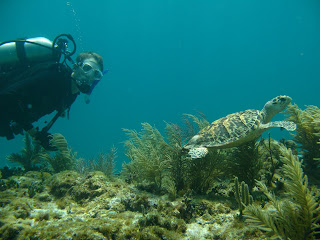 |
| Photo: G.P. Schmal FGBNMS |
Have you ever scoured the internet in search of new fishing
spots? Tried to figure out where you can or can’t fish? Do you ever research a
particular species or habitat in the Gulf of Mexico? Do you wonder about the information
and decision-making process behind fishing regulations? If so, we’re delighted
to share a resource that may help you find all of those things in one place.
The Gulf Council has recently remodeled its Coral Portal, a website
that houses a range of interactive maps, tools for making management decisions,
and educational resources. Development of the site is funded by the NOAA Coral
Reef Conservation Program, and the project aims to share environmental
information associated with corals and fisheries in the Gulf of Mexico with
folks wh
Click here to visit the coral portal: http://portal.gulfcouncil.org
Resources on the Portal are organized in three different
categories:
Map
 |
| Coral Viewer |
This suite of interactive maps allows you to explore
management areas and different known habitats in the Gulf of Mexico. To
highlight a few, the Fishery Management Areas Map shows jurisdictional
boundaries and areas in the Gulf with fishing restrictions. The Spiny Lobster
Closed Area map highlights the areas off the Florida Keys where lobster traps
are prohibited to protect threated staghorn and elkhorn corals. There are also
a number of maps devoted specifically to coral including: The Coral Viewer
which shows known coral areas in the Gulf, the Coral HAPC Explorer which shows
the locations of current and recommended coral Habitat Areas of Particular
Concern, and the Predictive Modeling of Deep-Sea Coral Habitat Map which uses
factors like depth, bottom shape, and salinity, to predict where deep water
corals may exist.
Manage
 |
| Proposed HAPC's in Coral Amendment 9 |
This section of the Portal focuses on tools that highlight
management issues being considered by the Gulf Council. Currently, you’ll find
a summary of the 5-year review of Essential Fish Habitat that was recently
completed, including profiles of federally managed species and their habitat
associations. You’ll also find a management tool that will help to inform you
about Coral Amendment 9 – which considers establishing new deep-water coral
protections in the Gulf. You can analyze management actions being considered by
the Gulf Council using the map tool that highlights potential Habitat Areas of
Particular Concern. This section of the Coral Portal will be updated as new
management measures are considered.
Discover
 |
| Lionfish Storyboard |
Here you’ll find a variety of different resources designed
to enhance your understanding of corals, habitats, and the species linked to
them. There are interactive articles on topics like lionfish, goliath, and
coral management. Additionally, you’ll find a link to the Portal blog which is
jam packed with posts on different habitats. Finally, you’ll find clickable
posters that display creatures and habitats of the deep Gulf of Mexico.
New material is added frequently, so check back in to see
what we’ve been working on.
As you explore the resources on the updated Coral Portal please
let us know what you think. We would love to hear what’s working (or not) and
what other tools you may find useful. Contact us at portal@gulfcouncil.org with questions,
comments, and suggestions.










